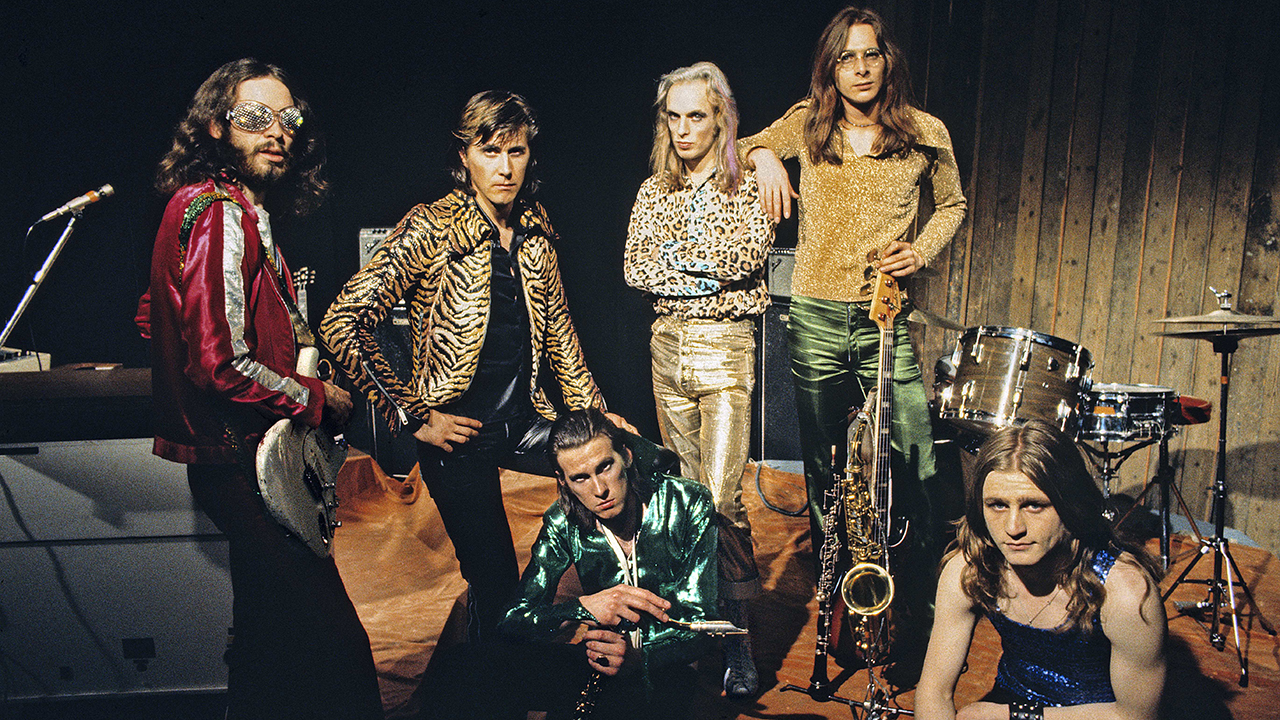'R&B so rough-edged you could sand floors with it': The story of Vinegar Joe
Mock muggings, sexual advances and sweat stains were all part of the Vinegar Joe story – along with some blistering British blues-rock. But one member was plotting to leave...
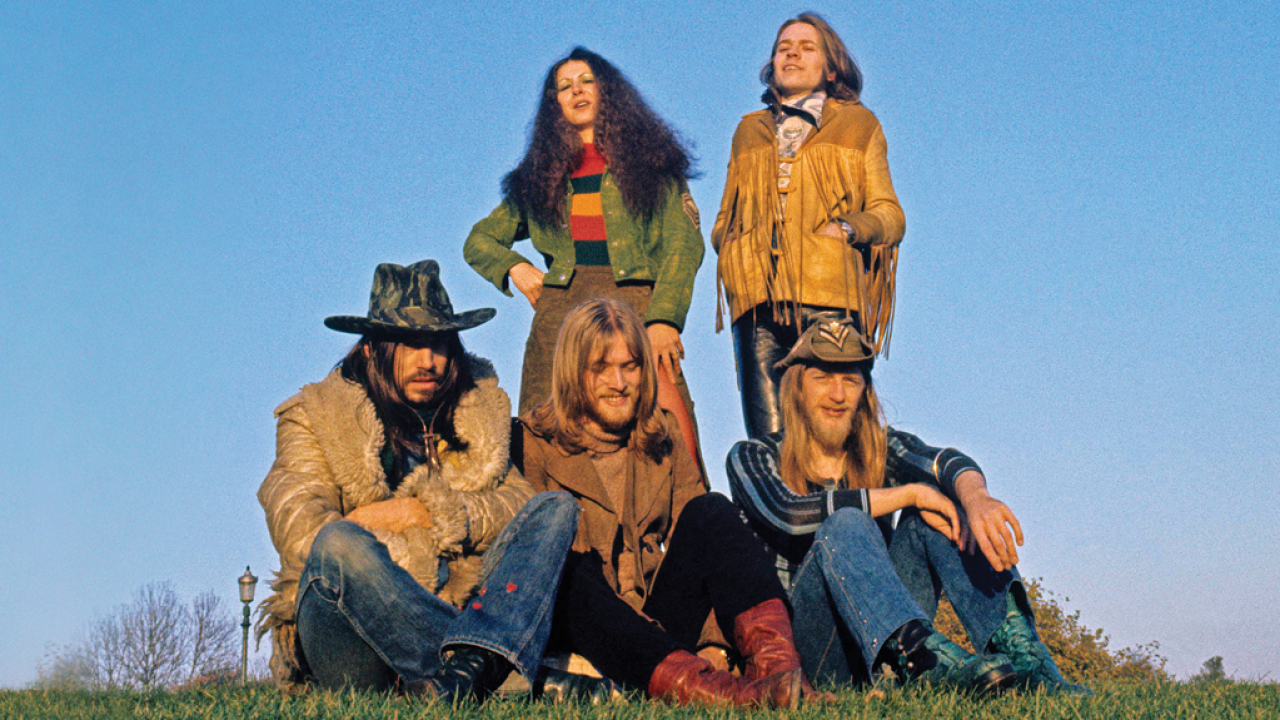
It’s late 1973, and Vinegar Joe singer Elkie Brooks is walking home to her flat in Fulham. She’s halfway down the alleyway that leads from Putney Bridge underground station to the New King’s Road, when a man steps out of the shadows.
Without warning, he punches Brooks in the face. She falls to the ground, ripping the long winter coat she’s wearing. The man steals her bag, along with all her money and credit cards. A dazed Brooks struggles to her feet, runs back to the station and calls for help. An ambulance arrives to take her to hospital. The headline in that day’s Evening Standard reads: ‘Rock star mugged in West London.’
…Except it was all a scam, a mock street crime designed to drum up publicity.
“Bizarre as it might seem, it seemed like a good idea at the time,” Brooks says today. “The robber was a professional boxer. He knew what he was doing. He knew he wasn’t going to mark me.”
“So a ton of people who had never heard of Elkie Brooks saw her name on the front page of their evening paper,” says Pete Gage, Vinegar Joe guitarist and Brooks’ then-husband. “Effective? To anyone who suspected it was a stunt, it certainly told them how determined we were to succeed.”
But steely determination wasn’t enough. A few months later, in March 1974, Vinegar Joe broke up when it became apparent that, all along, the band had been created as a vehicle to launch the solo career of Brooks’ vocal partner, Robert Palmer. Gage sighs: “More fool me for not seeing that coming.”
Vinegar Joe were the first band this writer ever saw live, in the exotic environs of Slough Community Centre. They made quite an impression. Elkie Brooks – belying her present-day, soft-focus MOR image – was raunch’n’roll personified, a thigh-thrustin’ hybrid of Janis Joplin and Tina Turner.
Sign up below to get the latest from Classic Rock, plus exclusive special offers, direct to your inbox!
Robert Palmer was, by contrast, the ultra-coolest of cats. A smooth operator who sashayed around barely breaking a sweat while his bandmate stomped, shrieked and hollered like a she-devil. Brooks and Palmer were polar opposites but their onstage relationship was pure dynamite. Yin, yang, thank you, ma’am.
Palmer sported a tousled mop of short blond hair and stylish attire that plainly wasn’t bought at Kensington Market. He was more Paco Rabanne than patchouli oil – which most certainly couldn’t be said of Vinegar Joe’s other male musicians, led by six-stringer Gage. They were craggy hippies in scoop-necks and loon-pants who cranked out R&B so rough-edged you could sand floors with it.
Vinegar Joe formed in late 1971 out of the ashes of jazz-fusion combo Dada, who had released a single album for Atlantic Records the previous year. “Musically, there were no boundaries with Dada,” says Brooks. “There must have been 10 or 12 of us altogether. There were two other vocalists besides me [Jimmy Chambers and Paul Korda], we had trumpets, saxophones, trombones… It was a very unusual band.”
“Paul Korda was a key part of Dada at the beginning, but we all found him too bizarre and full of bullshit,” says Gage. “I had had my eye on Robert Palmer for a couple of years; I first saw him playing bass and singing with The Mandrakes at Hull Art College. [Trumpet player] Alan Bown gave me a call looking for a vocalist and I recommended Robert to him. But I also warned Alan that, one day, I’d want Robert to front one of my bands.”
When Korda was sacked from Dada, “I called in my favour with Alan,” says Gage. “Robert was very confused and undecided, but the offer of a US tour won him over.”
With Palmer in tow, Dada departed for the States to play a series of dates supporting Iron Butterfly. Behind the scenes, however, Atlantic Records supremo Ahmet Ertegun had decided the multi-membered Dada was financially unviable and too much of a drain on his label’s coffers. “We were told to drop the brass section, trim the frontline and get more rock-oriented,” says Gage.
Dada bassist Steve York – soon to be part of the fledgling Vinegar Joe – recalls being summoned to a meeting at London’s Hilton Hyde Park Hotel.
“I was there along with Elkie, Robert and Pete,” he says. “We met Ahmet and [Island Records boss] Chris Blackwell. Ahmet wanted the four of us to be part of a slimmed-down band that he’d share with Chris. We’d stay on Atlantic in the States, and Island would have us for the UK and the rest of the world.”
“What we didn’t know was that Blackwell already had his claws into Robert,” says Gage. “Alan Bown was signed to Island and Blackwell had snapped up Robert as a solo artist.”
Moreover, Blackwell wasn’t keen on Elkie Brooks being part of Ertegun’s proposed new band.
“Chris wasn’t interested; he didn’t want to know about me,” she confirms. “Luckily, Robert stood his ground, saying: ‘No way, she’s a fantastic singer, she’s great, she’s got to be a part of it.’
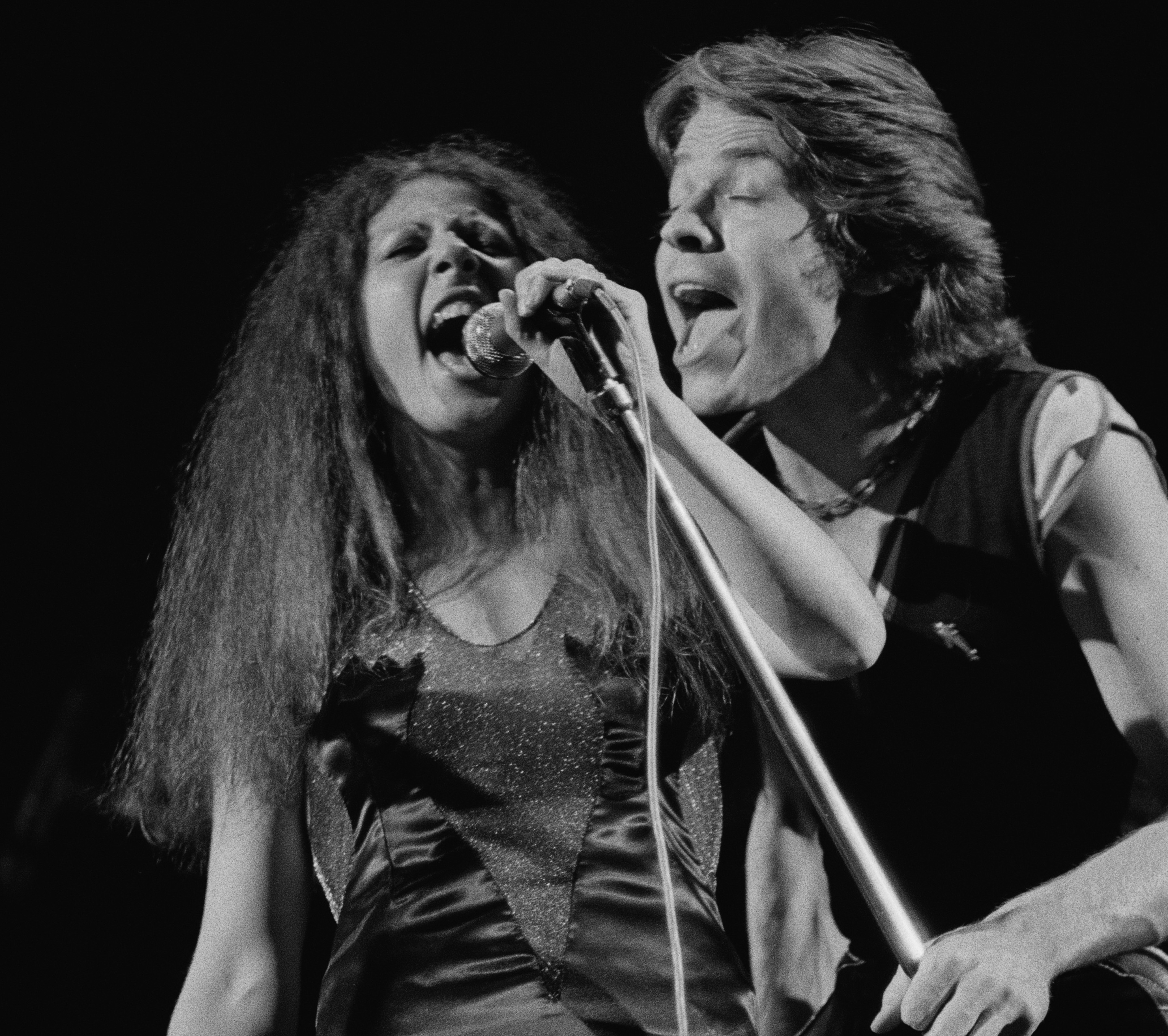
Gage, now a sound-production teacher in Australia, has a more barbed view of events. “Atlantic wanted Robert Stigwood to manage Dada. When I refused to give Stigwood a blowjob, all deals were off the table. Ertegun had tried to get his leg over with Elkie; he was crazy about her as ‘the rose’. After he failed, he sub-licensed us to Island.”
Blackwell insisted the new band be called Vinegar Joe, after a sourpuss US Army General called Joe Stilwell. “A pretty lame, unattractive name,” says Gage. “No doubt it was a reference to me being too serious, sarcastic and unimpressed by his status.”
Vinegar Joe made three albums – a self-titled debut (1972), Rock ’n Roll Gypsies (also 1972) and Six Star General (1973). They were an electrifying live act and quickly became a staple of the UK’s then-thriving university circuit. But they struggled to capture their supercharged performance energy on vinyl. “It wasn’t good enough on record, was it?” agrees Brooks. “We did very well on tour, but we just weren’t pushed enough in the studio.”
“We all had a lot of studio experience and we might have been too inclined to polish everything,” opines York.
“Our efforts in the studio were fine but the production should have had more commitment,” claims Gage. “Vic Coppersmith-Heaven [aka Vic Smith, producer of The Jam] was given the job for our first two most crucial albums. I remember him getting me to smoke raw opium through a Coca-Cola can before attempting a mandolin solo – an experience I would never choose to repeat.
“We recorded the second album at Richard Branson’s Manor Studios. Mike Oldfield was sleeping under the stairs doing a low-budget LP called Tubular Bells during the down-time between our sessions. One of my chores was to give Mike a shout on my way to bed. I was horrified when I heard the final mixes of Rock ’n Roll Gypsies. Vic had been smoking a lot of dope and listening to Oldfield’s tracks on the side.”
On a more positive note, “Elkie was being really acclaimed and we were constantly gigging,” says Gage.
“We were a full-on rock’n’roll band,” adds Brooks. “There were very few ballads in Vinegar Joe. We just used to go out and boogie for an hour.”
“Pete Gage was a good band leader,” says keyboard player Mike Deacon. “Robert had a quiet, laid-back charm… He was probably overshadowed by Elkie’s aggressive stage presence, but it seemed to work. I didn’t know what was going on behind the scenes. I never met Chris Blackwell and I wasn’t involved in the business side of the band.”
To quote a music-press review of the time: “If Elkie Brooks is on stage and the audience aren’t giving enough of a response she’ll tell them to get off their fucking arses and start boogying.”
“I underwent a personality change in Vinegar Joe,” Brooks grins. “Deep down I was a shy girl from Manchester, I know that’s hard to believe. Vinegar Joe was the start of me getting less inhibited as a person. In Dada I had a gypsy image: big skirts, big earrings, long, flowing, wavy hair. Vinegar Joe transformed me into a rock chick. A couple of brandies and a line of coke certainly helped as well.”
“Elkie always liked a brandy, Robert smoked weed and the other players enjoyed liberal use of various substances,” recounts Gage. “But compared to many other bands on the circuit in the 70s, we were actually quite clean.”
Sometimes the simmering rivalry between Brooks and Palmer threatened to boil over.
“Robert was a competitive bugger, especially on stage, and so was I,” says Brooks. “So occasionally we clashed. Having said that, we’d often go out to a nice bistro and drink a bottle of wine together while the rest of the band were having fish and chips.”
Many fans were convinced Brooks and Palmer were an item, a smouldering photo session of the pair by Gerard Mankowitz adding fuel to that particular fire.
Says Gage: “Not many people knew that I was together with Elkie. We were very professional and agreed that marriage could alienate fans.”
In December 1972, the front page of the Melody Maker carried the banner headline: ‘Jeans and sweat band Vinegar Joe – the face of ’73 is Elkie Brooks.’
“Robert was pissed off, to be perfectly blunt,” the singer, now age 70, recalls. “He would make a point of saying: ‘I don’t wear jeans’, or walk into the dressing room and say to me sarcastically: ‘How’s your jeans and sweat tonight?’”
But Palmer might have had a point, as Brooks makes mention of an earlier live review by “a creep from the Melody Maker” that referenced the sorry state of her armpits during a typically steamy on-stage performance.
“No, it was worse than that,” insists Gage. “The review talked about Elkie being right upfront on stage, and if you were looking to see if she had knickers on you’d be able to see her understains. I was on the phone within minutes to Ray Coleman, the Melody Maker editor, threatening legal action unless there was an apology – and I said I wanted a front page of Elkie. Ray, gentleman that he was, agreed immediately and provided the ‘face of ’73’ cover. Island’s publicity department would never have done anything like that for us.”
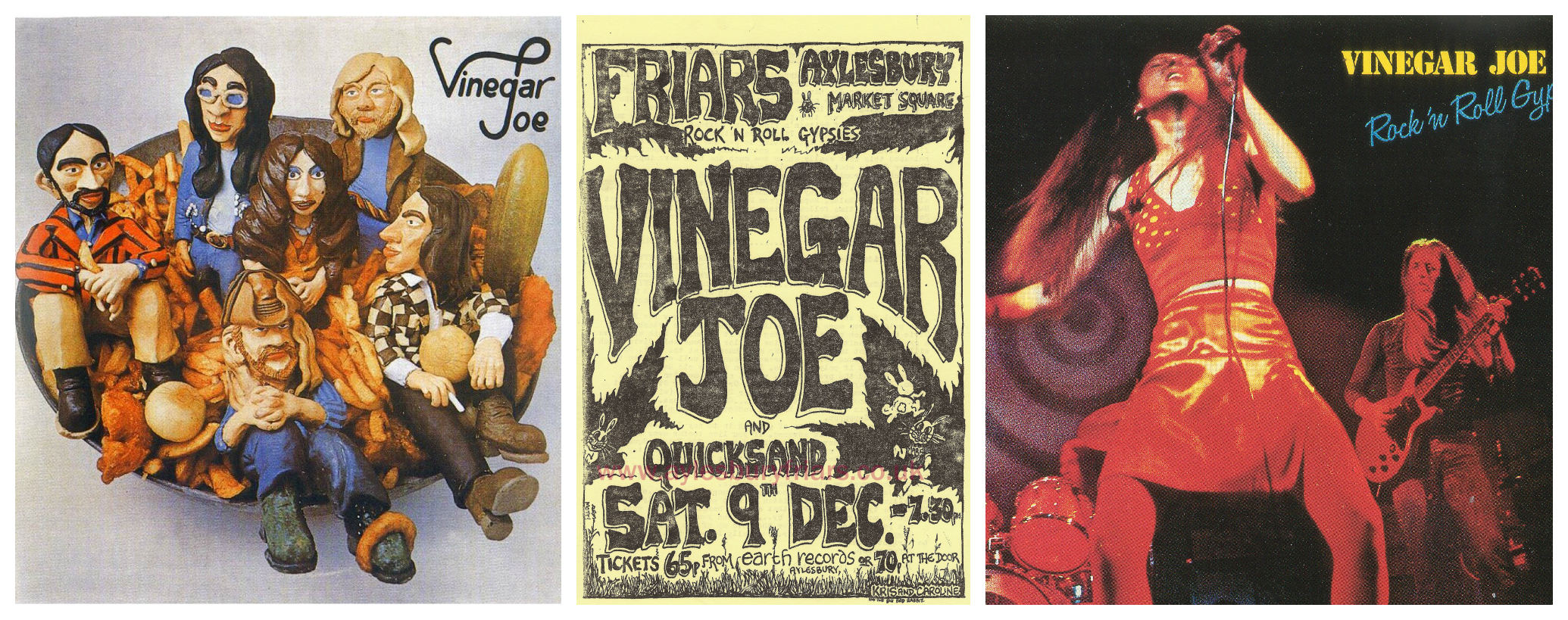
Elkie Brooks believes Robert Palmer “had his whole solo thing mapped out a good year before he told us he was going to leave. It absolutely broke my heart when Vinegar Joe disbanded.”
Steve York recalls: “We recorded a couple of songs – cover versions of Rescue Me and Sweet Nothin’s – and my understanding was that they were to be released as a double-sided single, and we were going to continue under the name Electric Elk. I had an offer to join Bad Company, but I turned it down because I thought we were carrying on. I was distraught when I was told the plug was being pulled. Pete Gage told me Chris Blackwell wasn’t interested in Elkie and the rest of us. I was devastated, financially and spiritually. Forty years later, it’s one of the best bands I’ve ever played in, if not the best.”
“People thought the split was my fault,” says Brooks. “They thought I’d gotten delusions of grandeur, that I wanted to go out on my own and become a big star. But that wasn’t the case at all. I was a team player; I still am. If I was face to face with Chris Blackwell now, I’d say to him: ‘You only ever thought of Vinegar Joe as Robert Palmer’s backing band.’ Some might say that sounds like sour grapes, but that’s what I feel. Pete Gage, my old man, was adamant it wouldn’t be the same without Robert. So that was the end of Vinegar Joe.”
Says Gage: “I pleaded with Robert not to leave. But he told me with a big smile: ‘Well, Chris Blackwell has bought me a house in the Bahamas, so I can’t really tell him no, he’d be so upset with me.’”
How far could Vinegar Joe have progressed if Palmer had stayed?
“The final line-up with Mike Deacon and [drummer] Pete Gavin was musically very solid,” says Gage. “The contractual complications with Island and Atlantic made it messy for a good manager to intervene. With a new record deal, Vinegar Joe could have paralleled Fleetwood Mac; in fact, Mick [Fleetwood] said we influenced them to some extent. Muff Winwood was taking an interest in writing for us, too. It could have gone huge, especially in the US, with good management, production and a more commercial direction.”
Palmer released his debut album, Sneakin’ Sally Through The Alley, in September 1974, kicking off a hugely successful solo career. Ten years later – despite his reputation for not being a ‘band person’ – he joined supergroup the Power Station, made up of members of Duran Duran and Chic.
“Robert was a predator and Duran Duran were hot,” says Gage. “Working with them had advantages for him. Plus he got to work with his New York buddies, Bernard Edwards and Nile Rodgers [of Chic].
“Robert was anybody you wanted him to be if it helped him further. He was the perfect Capricorn – aloof, posed on the hillside, looking down from a distance, sometimes coming close, but always a step or two away, with sharp goat horns as defence.”
If Palmer had lived – he died of a heart attack in September 2003, aged just 54 – could there ever have been a Vinegar Joe reunion?
“No way,” says Gage bluntly.
“I would think the chance of Vinegar Joe re-forming if Robert was alive would be nil, considering Elkie has carved out a career in a completely different genre,” says Deacon.
But Brooks reveals: “My son, Jay, who’s also my manager, wanted to do it. I remember him saying, ‘I’m going to get in touch with Robert, mum. I think you guys have got to do an album together again.’ But Robert died shortly afterward. We all lived our lives to the full in our twenties and thirties, but Robert was still burning the candle at both ends in his fifties, you know what I mean? We taught him a lot of bad habits.”
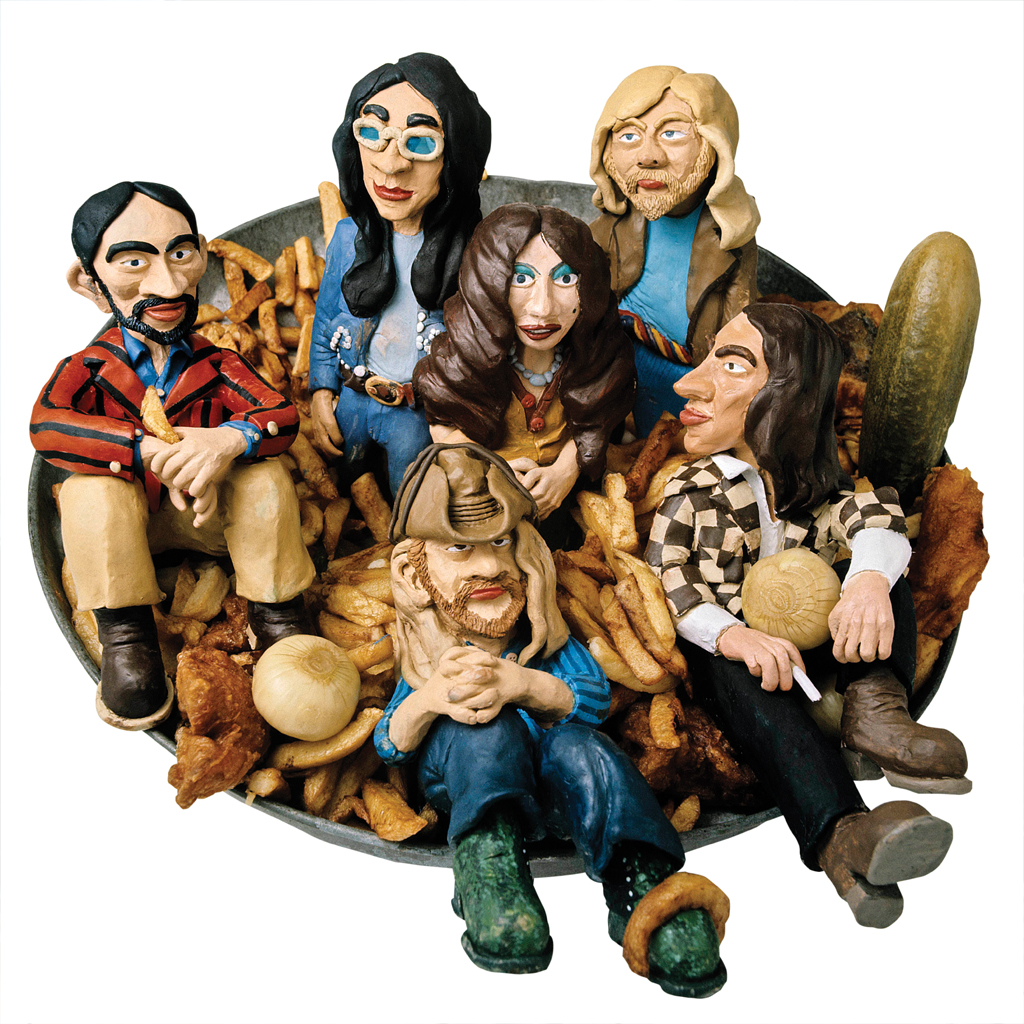
Geoff Barton is a British journalist who founded the heavy metal magazine Kerrang! and was an editor of Sounds music magazine. He specialised in covering rock music and helped popularise the new wave of British heavy metal (NWOBHM) after using the term for the first time (after editor Alan Lewis coined it) in the May 1979 issue of Sounds.

